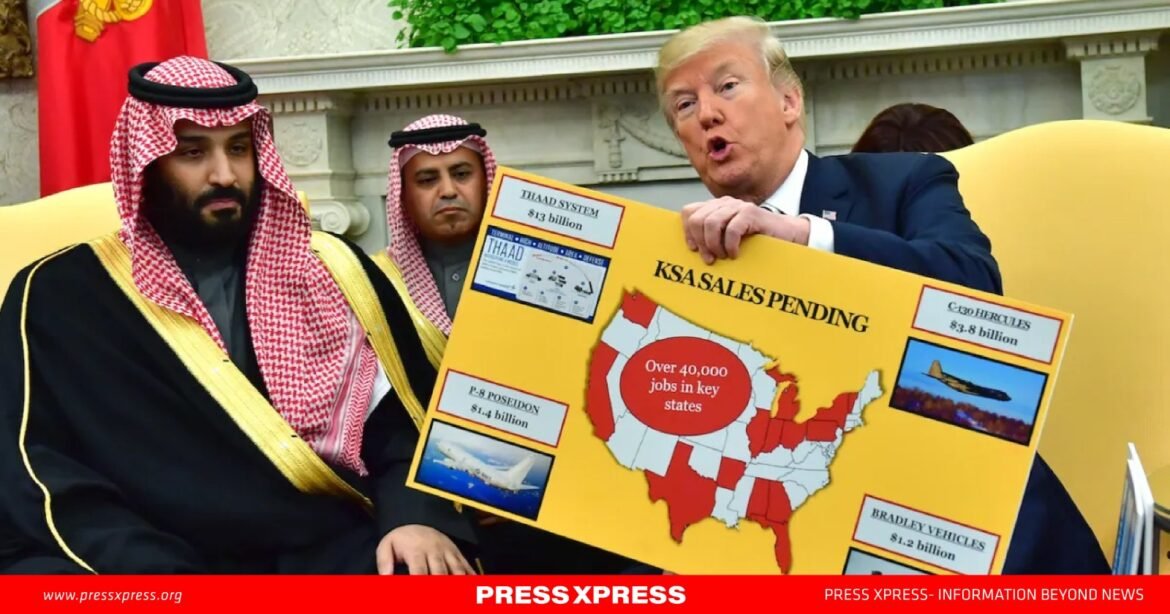As the 2024 U.S. presidential race nears its climax, the Gulf States find themselves in a unique position, torn between short-term continuity and long-term strategic aspirations. With former President Donald J. Trump contending against current Vice President Kamala Harris, both candidates offer Gulf powerhouses like Saudi Arabia and the United Arab Emirates divergent prospects, notably on relations with Iran and China. While the election may not herald immediate changes in U.S. policy, the Gulf States are positioning themselves with a preference that favors Trump’s transactional approach and promises of regional security assurances, which align closely with their geopolitical aspirations.
The Gulf’s Historical Relations and Trump’s Pragmatic Diplomacy
During his previous administration, Trump’s foreign policy adopted a straightforward, transaction-based approach, particularly toward the Gulf. In 2017, he secured a landmark arms deal with Saudi Arabia, reinforcing Riyadh’s defense capabilities. Unlike Harris, Trump’s strategy closely aligns with Gulf priorities, particularly in defense and countering Iranian influence. This approach resonates with Gulf leaders, such as Saudi Crown Prince Mohammed bin Salman and UAE Crown Prince Mohammed bin Zayed, who view Trump’s policies as beneficial for their strategic ambitions and regional stability goals.
In 2021, the Biden administration’s pause on arms sales to Saudi Arabia underscored how U.S.-Saudi relations can shift dramatically between presidencies. Trump’s approach granted Gulf states greater autonomy in their military engagements, especially in Yemen, supporting Riyadh and Abu Dhabi’s aspirations for a more robust regional presence. A potential Trump return promises these Gulf allies a continuation of military support, with fewer strings attached on human rights issues, and a strong focus on countering Iran’s influence.
The Iran Factor: A Polarizing Issue
One of the sharpest divides between Trump and Harris lies in their approach to Iran. Trump’s “maximum pressure” campaign aimed to limit Iran’s economic and military capabilities through strict sanctions and diplomatic isolation. His decision to withdraw from the Joint Comprehensive Plan of Action (JCPOA) aligned with Saudi and UAE interests to contain Iranian power. Conversely, under Biden, while sanctions remained, there was a willingness to reopen nuclear negotiations. Harris, adhering to Democratic policy norms, may pursue similar talks, which could strain ties with Gulf allies wary of a resurgent Iran.

Saudi Arabia and the UAE, having a deep-seated rivalry with Iran, fear a policy under Harris that would revisit the JCPOA, indirectly empowering Tehran. A resumption of diplomatic ties between the U.S. and Iran could lead to concessions on Iran’s nuclear capabilities and sanctions relief, potentially destabilizing Gulf ambitions. Trump’s stance resonates with Gulf leaders, as he views Iran’s regional aspirations as a direct threat to Gulf security. His commitment to maintaining the Gulf’s defense ecosystem positions him as a more reliable ally against Iran.
Israel-Gaza-Lebanon Conflict: A Complex Balancing Act
The current conflict involving Israel, Gaza, and Lebanon, with Hezbollah’s active role from Lebanon, complicates Gulf-U.S. relations. Both Trump and Harris back Israel’s security, but their approaches diverge significantly, impacting Gulf states’ strategies that balance apprehensions about Iran with support for Palestinian rights.
Trump firmly backs Israel and takes a hardline stance on Iran, resonating with Gulf states concerned about Tehran’s regional influence. While his alignment with Israeli security priorities appeals to Gulf capitals, Trump’s unwavering support for Israel contrasts with the Gulf’s diplomatic support for Palestinian aspirations. In contrast, Harris also supports Israel’s security but stresses humanitarian issues, urging restraint and concern for Palestinian civilians. This stance aligns more closely with the Gulf’s approach, which includes humanitarian aid for Gaza and calls for ceasefires. While Trump’s approach aligns with Gulf security concerns, Harris’s balanced perspective could better support their broader goal of regional stability.
Energy Policy: Diverging Strategies, Shared Impact
The energy strategies of both candidates significantly shape Gulf expectations. Trump’s pro-oil stance aligns with Saudi and UAE goals to capitalize on hydrocarbon exports amid a volatile global energy landscape. His commitment to expanding drilling contrasts with Harris’s climate-conscious agenda. However, both would likely maintain current U.S. oil and gas production levels for economic reasons. Trump’s less restrictive energy policies could help stabilize oil prices and reduce market volatility, benefiting Gulf states dependent on oil exports.
Nonetheless, Trump’s protectionist trade stance presents a complication. A potential global trade war under his administration might undercut economic growth, lowering oil demand—a key revenue source for Gulf economies. While Gulf leaders appreciate Trump’s friendly policies on energy and defense, a trade war could lead to instability that Gulf economies may overlook in favor of immediate strategic gains.
Long-Term Impacts: Rising Gulf Rivalries
While Trump’s policies may bring short-term advantages for Gulf states, they could intensify competition within the region. Saudi Arabia’s ongoing defense negotiations with the U.S., linked to normalizing relations with Israel, underscore Riyadh’s bid for regional leadership. Meanwhile, the UAE, through the Abraham Accords and economic diversification, has positioned itself as a Gulf leader in tech and defense, using trade channels with Israel to strengthen its role.
A Trump presidency could fuel this intra-Gulf competition for U.S. favor, as these states vie for exclusive partnerships and influence in Washington.
Gulf Stakes in a Tight Race
While Harris offers continuity in diplomatic approaches, which favors global stability, Trump’s assertive stance appeals to Gulf leaders who value a U.S. ally firm against Iran and open to flexible military cooperation. His transactional diplomacy and pro-oil policies align well with Saudi and UAE ambitions for regional influence. However, Trump’s protectionist approach risks hampering Gulf economies by constraining global trade—an acceptable risk for Gulf leaders in pursuit of their strategic objectives.
For now, the Gulf’s preference for Trump reflects a strategic calculation rooted in national security, economic stability, and regional influence. Whether this alignment will bring the desired results is uncertain, as both candidates bring complex challenges and opportunities. Ultimately, the 2024 election is less about immediate shifts and more about shaping the Gulf’s medium-term vision as it navigates evolving U.S. foreign policy.


